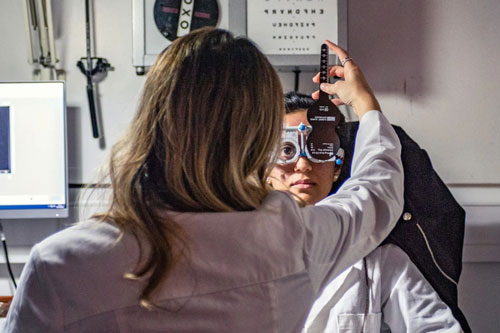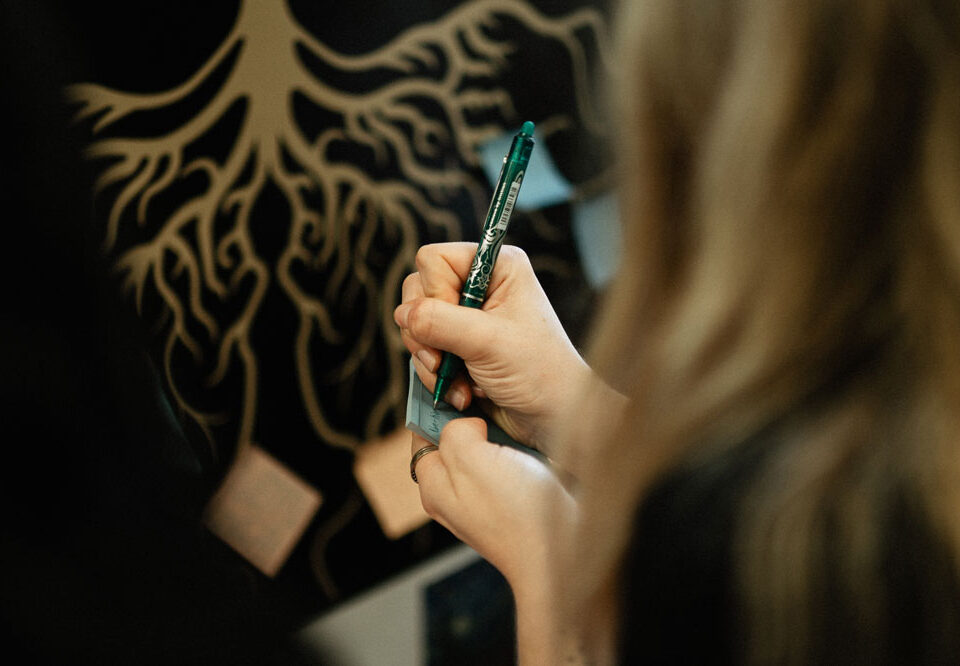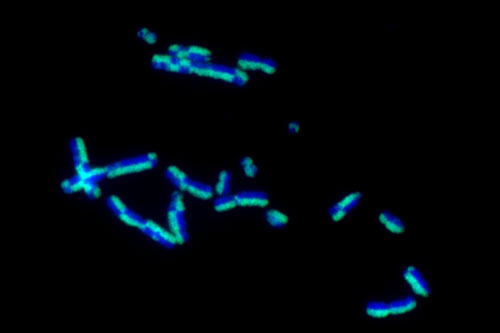Overview
Professors Chris Owen and Alicja Rudnicka are leading pioneering research into the use of artificial intelligence (AI) to detect disease risk from simple eye scans.
Their AI-powered technology can identify early signs of cardiovascular disease, cognitive decline, and diabetic eye disease—often before symptoms appear.
This innovation has the potential to transform routine eye screening, reduce pressure on NHS services, and support the UK’s 10-Year Health Plan by shifting care into community settings.
The Challenge that the research is responding to
Diabetic eye disease is a major complication of diabetes and a leading cause of blindness.
An estimated 5.8 people have diabetes in the UK, and every year, around three million people are screened for diabetic eye disease. With diabetes rates rising, the NHS faces increasing demand for eye screening services. Millions of digital images taken of the retina at the back of the eye are captured annually, requiring manual analysis by specialists—a time-consuming and resource-intensive process.
AI offers a scalable solution, capable of analysing these images accurately within seconds, helping to identify sight-threatening conditions early and reduce the burden on healthcare systems.
Partnerships involved
This research is being conducted in collaboration with Kingston University, Moorfields Eye Hospital and Homerton Healthcare NHS Foundation Trust
These partnerships have enabled the testing of AI algorithms on thousands of patients, ensuring clinical relevance and real-world applicability.
Our research
The AI algorithm developed by the team at the School of Health and Medical Sciences extracts tens of thousands of measurements from retinal images to detect signs of blood vessel damage. These include measuring vessel width, area, and curvature —which are often invisible to the human eye.
By analysing these data, the system can detect early signs of diseases such as dementia, Alzheimer’s, diabetic eye disease, and heart disease.
The technology is designed to be embedded into everyday clinical workflows, including high-street opticians and eye clinics, enabling faster and more efficient diagnosis.
Our impact
This AI innovation has the potential to save the NHS millions of pounds annually by streamlining the eye screening process and enabling earlier intervention.
It allows healthcare professionals to focus their time and expertise where it’s needed most, while patients benefit from quicker diagnoses and access to treatment. It can also provide reassurance that they aren’t at risk of future disease sooner.
By supporting early disease detection in routine settings, the technology aligns with national health strategies focused on prevention and community-based care.
As Professor Chris Owen notes, “AI analysis of eye images could transform healthcare by enabling early disease detection, when treatments are most effective.”




